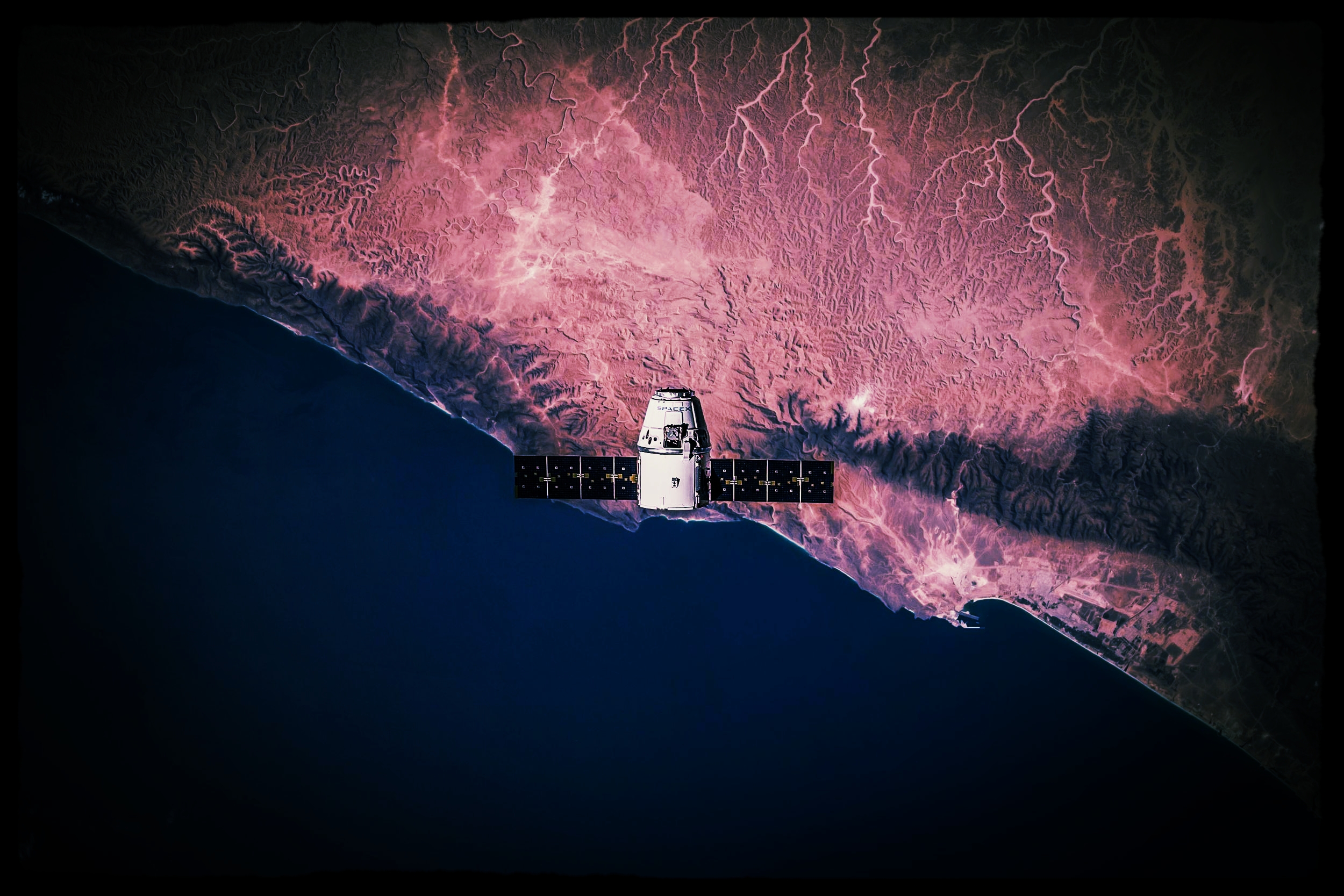

Time past, time present. Things predictable, things unknown. Frames changing around objects still; foregrounds peeling against static drops.
The near and the far are out of sync, and drifting. They no longer move as one, and prediction is hard. Yet, we predict - a bad prediction remaining preferable to any and all uncertainty - the agony of uncertainty always by degrees more agonizing than the mere cramp of calamity.
And in such course, modern man, having once reached beyond his modernity only to find himself modern again, contemplates his mechanical landscape. He thinks too much about the zenith overhead, and the nadir underfoot - worries too much about an angular disparity between an astronomical and true horizon - and lets a long festering suspicion about the distortions of his aperture overwhelm him. He feels it in his bones. He has wisdom teeth - they have motherboards. He harbors a forecast. He fears the technology around him is plotting sinister. On solitary nights, basking in cool florescent fields, screens of every shape and size narrate a nightmare; artificial intelligences colluding with smart technologies to enslave the soft skinned homosapien. As the pixels relay the message, pangs of hunger assert peckishness. Picking through a bag of condensed grain snacks, he laments the death of the sandwich and starts another episode.
On evenings such as these, when the simulations afforded by the screens cease to yield an ecstasy of communication - modern man silences said screens and moves to sleep. But whatever is left of reality asserts itself, and the voices cannot in the final case be quieted - an interior cacophony sing-songs on into night. Sometime in the small hours, he begins to dream.
It is a nostaliga. He imagines himself Santa Claus, awoken by premonition alone. Leaping out of bed, urgency dawns red pants and jacket, stumbles down stairs and out to workshop. Against the harmonics of the arctic night, swinging doors startle elves. In confusion, some are sure that, having discovered plans for unionization, Santa has come to liquidate unruly elements. Yet, rather than seizing bodies, it is the train sets and dolls, the wind-up soldiers and stuffed bears which he destroy. In between acts of destruction he wounds beyond repair the workshop’s tools and machinery. Just before waking, modern man senses that he is back in the main house, beside Mrs. Clause, eating milk and cookies, and answering questions about just what it was that had him so spooked. He was sure the machines had divined their own naughty and nice list. Wasn’t he?



As digital nights become digital dreams, digital dreams become digital days; mornings pregnant with a technological intruder in a fleshy midst. Pranktious and paranoid as the thought is, our robotic creations seem to us rogue operators, disruptors of the inevitable undulations of our evolution – as if mother nature could give to one of her children a toy beyond the comprehension of all others.
Meanwhile, the disembodied – victims of the mind body problem, gainfully employed as drivers of corporeal vehicles – consider the multiplying web of screens and cables a threat, a challenge to the mind that created them. They move ill at ease through virtual landscapes, through crowds of machines performing duties once their own. These modern men, monkeys no longer, appreciate only the metric of mind, and so fear a competitor. But in their holographic estimation of homosapianity, these men breathe life into a phantasy less powerful than the air out of which it was created. The screens have not come to compete with the mind, but to release it from its narrow calculations. This gift, from mind to body whole, is misunderstood in the manner of a child receiving for the holidays amorphous blocks rather than specific figurines. Such a child tantrums not in disappointment, but in anger at the demands of elemental creativity implied by the gift.
This vexation leads to a false resistance; a war that cannot be won given the poverty of distance between adversaries. Where is the battle line if all armies stand together?
There is no way to slow the growth of technology without relying on it more heavily; we evade our creations only to discover that in so doing we have bound our development inexorably to theirs.
We do not stand on the forest floor, point to a spider’s web strung precariously between cedar towers and proclaim, “one day this web will develop beyond the control of arachnid authority and destroy its creators.” We do not, because in the case of spider, the inexorable symbioses of tool and tooler clearly constitutes survival. Should we spend every day bemoaning the dangers of a web whose embalmed offerings we dine on every night?

There is a circle, there is a pulse…
Everything that changes, changes again. Steps that lead forward, just as easily lead back.
And what will always be, rises with the tide, swamps all chance, possibility, and difference, and carries it back out to sea.


